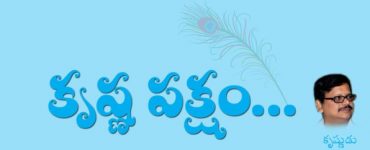Aneek Chatterjee is a poet and academic from Kolkata. Archive Avenue is his fourth collection of poetry. It consists of seventy-one poems all written in free verse. The two sections in the collection– “Mindscape” and “Pandemic” explore fluid movement to recalibrate the connection between mind and body. Liberated from the conventional form of poetry Chatterjee lets his thematic impulses guide the movements. The fluidity of poetry is tapped into and complemented by the internal rhythms of the mind with the external sounds of the Pandemic which had almost brought life to a standstill. In this process of self-exploration, Chatterjee transcends the rigors of poetry to communicate poetic adhesion and cohesion.
The introductory poem ‘Nascent Bylanes’ is a conflation of mind, intended to refer to the act of contemplation and escape, the poet writes, “hanging in front/ Red yellow blue orange green/ in the paper board./ Take a gun in hand/ & shoot as per desire/ Shoot my id, my pretense, lust,/ ladder, arrogance” but he appeals “but do not shoot/ nascent lanes &bylanes/ beside the bush/ Tomorrow/ red yellow blue orange/ paths may sprout from/ nowhere”. The poet’s mastery of underscoring poetic tension through the use of a many-hued mindscape, projected from inventive angles at varied intensities, strengthens the structure and effect of the poem.
“Carcass” is a poetic response to a global crisis that we are facing—the wilful destruction of nature by the unruly tenants of the planet. It is a poetry of protest but concerns empathy with nature and mind-“The carcass of the turtle/ touched my feet on the shore/ in a dark cloudy morning/ a group of innocent plastics/ blocked my drain, the way we/ raised demands on the road”. The poet in the titular poem “Archive Avenue” is surprisingly self-absorbed throwing aside all pretences to profundity, “Sometimes I pause on/ archive avenue & dig a/ laced football that required/ pumping in bladder, careful stitch/ & ten obliterated kids”.
“Friday Locusts” is multi-layered with deeper meanings and eloquent expressions which add to the poet’s oeuvre. “Sat numb in the coffee house in a Friday evening, locusts whirling. Your red attire flew outside the window to the unknown sky. The sandwich appeared out of a traffic junction I got stuck in several times. Insects informed it was actually a geometry lesson I hated in school. Wanted to jump in the black hole inside the cup, but your stretched hand by the side was a solid branch I was not in a trance breaking. Instead, my brain sent a few locusts to sip quickly the unsavoury taste of the black hole”. In ancient Egyptian mythology, locusts were often linked with destruction. They were seen as symbols of chaos and disorder, and the god Set was sometimes portrayed as a man with the head of a locust. In some Native American cultures, locusts were seen as symbols of profusion and renewal. Thus in the first section of this poetry collection, Chatterjee has all the things that he thinks about and believes and he has been able to retain his simplicity which is quite noteworthy.
“Poets and poems are products of their times. Can an author, writing now, evade the ubiquitous impact of Covid-19, the pandemic that has made our lives vastly different in recent times? The scourge of the pandemic, which has been tormenting us since late 2019, still exists. A number of poems included in this collection, therefore, refer to the pandemic, in the second section of the book”, writes Chatterjee in the introduction to this poetry collection. “Full Stops” capture the deadly moments, “We’re now inside, / looking into our bones & flesh/ to peel off the silver/ & protein of audacious id/ Nights move into days/ & days into nights”. “Corona” is a scathing criticism of our vaunts and portrays the helplessness of the entire humanity in front of the deadly virus. “Show your stockpile/ of weapons of mass destruction/ to corona,/ it will laugh silently/ Show your sophisticated war planes/ and submarines, it will/ mock/..& from the top,/ advice you,/ humans, / think fresh, think anew/ There was/ something wrong with your/ ideas”. The poem underlined by primordial symbolism, reverberates the nerve-wracking pace of modern times and leaves a lasting impression in the minds of the readers.
“Pestilence” holds up a mirror to the troubled times when in every fold of life deadly silence rhythmed our lives. Chatterjee writes, “Silence had a rhythm/ earlier/ But when it is everywhere, / the big avenue weeps/ & red ants whisper inside”. This poem captures what ‘normal’ life has become for the author while living with the disease. These poems were written during the Lockdown and the Coronavirus pandemic, at a time when it seemed the whole world was going through the same crisis. The poetry of the second section is a narrative of resilience and a response to a first-of-its-kind crisis, the poet has raised questions and perplexities, there is acceptance of the truth, and there are sudden epiphanic moments, tears, and smiles–highlighting the journey from uncertainty to empowerment. The section highlights that the poet has come out with an important message that the key to any kind of obstacle is not to get demoralized. “The milky way told in an orange evening/ hope is not just a four-letter word, / it’s found everywhere in the galaxy”. One has to keep a positive mindset —a new outlook towards life and poetry and be innovative enough to find the answer.
The title Archive Avenue is intriguing so is the collection. It is an avenue wherein the activities and lived-in experiences of the poet’s mind are documented. It broadens the intellectual horizon and is surely going to enthrall the readers at home and abroad.
Author: Aneek Chatterjee
ISBN: 978-93-95224-02-4 ( Paperback)
Edition: (2022)
Price: Rs 250.
Published by Cyberwit.net
*









Add comment